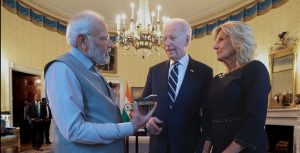Indian clothing and lifestyle brand Fabindia recently faced backlash after they launched an ad for their new festive clothing line. As section of Twitter users in India claimed the ad was indulging in ‘cultural appropriation’ and ‘abrahaminsation’ of Hindu culture as the collection was titled ‘Jashn-e-Riwaaz’. The use of Urdu irked many as they were against the use of the language spoken by Muslims for celebrating a clothing collection for the Hindu festival of Diwali. Jashn-e-Riwaaz, in Urdu, means “celebration of tradition”.
While the meaning of the title is unproblematic and rather in line with the collection, a section of Hindus said their religious sentiments were hurt. South Asian history is imbued with moments when Urdu has produced some of the strongest and most intriguing literary works. In fact, many renowned poets and writers that are respected and talked about have produced their work in Urdu. However, the language has become polarising in recent years in the country. Reason being, right-wing Hindu groups associate Urdu with Islam.
This is not the first time that something like this has happened. A recent ad campaign by clothing brand Manyavar, featuring Alia Bhatt in wedding attire, was pulled down because it seemingly questioned an old Hindu wedding ritual, thus questioning the tradition.
Similarly, in October, jewellery brand Tanishq had to take their advertisement down. The ad featured an interfaith couple at a baby shower organised for the Hindu bride by her Muslim in-laws. Right-wing Hindus accused the campaign for promoting “love jihad”, which, as per radical Hindu groups, mean the act of Muslim men forcing Hindu women to convert by marriage. As if social media backlash wasn’t enough, personal information of many employees surfaced on the web and they were sent physical threats and put in harm’s way.







